Solutions for ending sexism and sexual abuse
in sport
« We must provide regulatory tools to make this possible.»
These words from the Member of the European Parliament and joint president of the European Parliament’s Sports group, Iban Garcia del Blanco, at our conference “The Rubiales affair: the start of a new era?” on 22 September this year, show the determination at the European level to strengthen the legal framework in order to combat sexism and sexual abuse in sport more effectively, but what are the levers for action?
On the eve of the Olympic and Paralympic Games Paris 2024, this is a real issue for the European Union; sexism and sexual abuse in sport reflect increased tensions and highlight a lack of resources and regulations which damage the image of sport in Europe and also harm the victims.
Ewa Kopacz, Vice-president of the European Parliament and Coordinator for children’s rights, reminded us, in our revue dedicated to the subject, that studies around the world on gender-based sexual violence had shown that women athletes are more likely to be victims of sexual abuse in sport than their male counterparts. In France, for example, the figure reaches 79% of the cases filed [1]. In fact, sexism and sexual abuse in sport are closely linked to the vast subject of gender equality in society. Preventing and combating sexism and sexual abuse has become a matter of primary importance following profound changes of attitude in the sport sector towards promoting gender equality.
Getting all the stakeholders lined up for battle against sexism and sexual abuse

Iban Garcia del Blanco added another dimension: “now we have adopted laws, they need to be applied at all levels, in professional and also in amateur sport”. Iban Garcia del Blanco also stresses the need to create tools for combating and preventing this violence and to make them available to stakeholders in professional and amateur sport.
To ensure that this abuse is effectively combated means encouraging sport stakeholders to consult organisations whose primary function is combating sexual violence and sexism, inside and outside the field of sport, such as Colosse aux pieds d’argile in France, or the U.S. Center for SafeSport in the USA [2].
Avenues of action for sustainably combating sexism and sexual abuse
There are now a number of legal and operational solutions. During the conference, Andrzej Rogulski, Vice-president of Sport and Citizenship, mentioned several operational triggers which could be strengthened to combat sexism and sexual abuse in sport.
-
Generalising dedicated phone-lines
Putting in place schemes for protecting victims is a requirement, and complaints must be dealt with confidentially and safely, in line with the proposals from the “Centrum Veilige Sport Nederland” (CVSN) in the Netherlands. This independent organisation was created to signal sexual violence in sport. It concerns promoting dedicated listening solutions to sport in general, at a national level and not for a specific sport. Centralising the scheme for hearing and collecting complaints should also allow the procedure to be better identified by sport structures and participants.
-
Firm sanctions
The law naturally provides for sanctions, but greater firmness from sport authorities and organisations against these behaviours is expected from the victims and people fighting against this violence. Like the Rubiales affair with its many twists, the greatest firmness must be adopted and shared by everyone when faced with these acts. It is also vital that schemes for prevention and hearing complaints be put in place in sport structures, along with mechanisms for temporary and permanent sanctions which can effectively support criminal or legal procedures.
-
Training for sport stakeholders in combating sexism and sexual abuse in sport
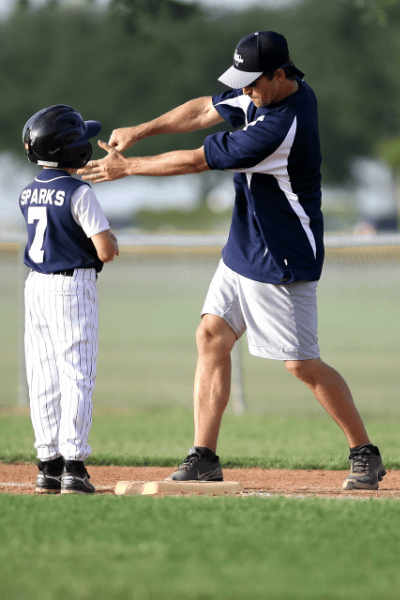
Among the proposals, the generalisation of training courses in preventing violence for coaches, sports staff and athletes themselves as well as managers is a starting point for changing behaviours.
During these training courses, the following subjects should be covered:
- The mechanisms governing sexual violence in sport and alarm signals;
- The rules to be established concerning physical contact between coaches and athletes, the way in which physical contact is initiated and how it can be perceived;
- Internal procedures to be followed in order to ensure the care of victims and the management of people accused;
- External procedures to be followed and organisations for referring the situation;
- Prevention and communication aimed at athletes on the subject of sexual abuse.
As an example, with the aim of promoting training and raising awareness, Lyon City Council, a leader in this area, has required every sport club in Lyon to follow training in combating sexism and sexual violence in 2024 in order to receive a grant. Also in Lyon, the football club Lyon-la Duchère has developed a centre for Prevention, Hearing and Mediation (PPEM) which is active in preventing sexism and sexual abuse in sport [3] .
-
Educate and raise awareness in childhood
As well as coaches, during a conference in Budapest in the context of the European project SAYES (Safeguarding Young European Skaters), of which Sport and Citizenship is a partner, the sociologist Ilona dr. Bodnár raised the question of the need to make parents and children aware of the problem in order to combat abuse from the youngest age.
According to Amélie Oudéa-Castera, Minister of Sport and the Olympic and Paralympic Games, “one in seven children is a victim of abuse in sport today”. It is therefore important to set up prevention schemes with this group [4].
-
The role of the media in helping people speak out
The subject of sexual abuse in sport is not new and for several years people have felt able to speak out, in line with the MeToo movement and like the recent Rubiales affair. As the media outlet Disclose, with its enquiry “le revers de la médaille”, revealed in 2019 the shocking extent of sexual abuse in sport [5], so the media has an important role to play in making this problem visible and raising awareness about it. The media can also contribute to making good practice in this area more widely known. Sport stakeholders (directors and managers, athletes, coaches, advisers and so on) must also publicly state their clear, firm position in the face of sexism and sexual abuse.
A few words on the conference: “The Rubiales affair: the start of a new era?”
With a view to broadening our ideas about inequality and sexism and sexual abuse in sport, shared by our project leader Eva Jacomet in a previous article on the Rubiales affair, Sport and Citizenship held a round table discussion in the presence of Francine Hetherington Raveney, Deputy Executive Secretary Council of Europe, Patricia Campos, sport chronicler and journalist, Maria Pina Tolosa, professional basketball player, Paqui Mendez, documentary producer and director and Andrzej Rogulski, vice-president of Sport and Citizenship, on 22 September 2023 in Valencia, Spain.
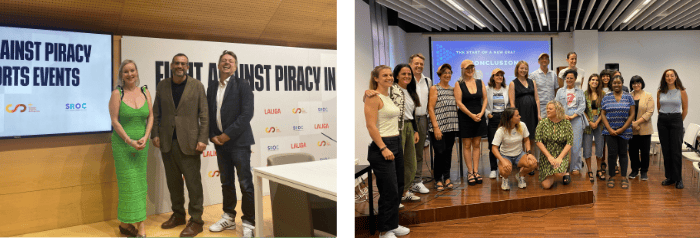
[1] Source: Fabienne Bourdais, Director of Sports and Ministerial Delegate for combating violence in sport, Sport and Citizenship revue 54: preventing sexual violence and protecting the public
[2] Safe sport article, page 28, revue 54
[3] Source: Julie Junquet, page 37, revue 54
[4] Source: https://www.maire-info.com/imprimer2.php?param=27683
[5] Le revers de la médaille, https://abus-sport.disclose.ngo/fr/
Find out more:
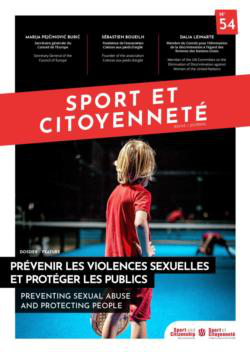 Discover the Sport et Citoyenneté review n°54 “Preventing sexual violence and protecting the public“.
Discover the Sport et Citoyenneté review n°54 “Preventing sexual violence and protecting the public“.
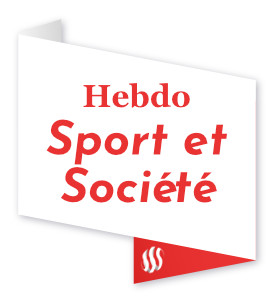 This article was published in our weekly “Hebdo Sport et Société” which appears every Friday. Sign up to our newsletter to receive the next article in your e-mails!
This article was published in our weekly “Hebdo Sport et Société” which appears every Friday. Sign up to our newsletter to receive the next article in your e-mails!
Read the previous article of the week:
Sedentary lifestyles: the challenge of the new “chair and screen addiction”, by Régis Juanico, Honorary Member of Parliament for the Loire, expert in public sports policy, and Hakim Khellaf, founder of the Cluster Grand Paris Sport, former sports advisor to the French Prime Minister.







 INSCRIPTION
INSCRIPTION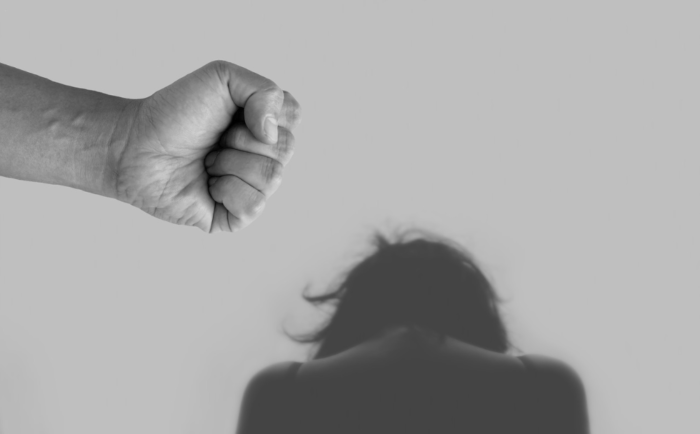

 CONTACT
CONTACT FACEBOOK
FACEBOOK